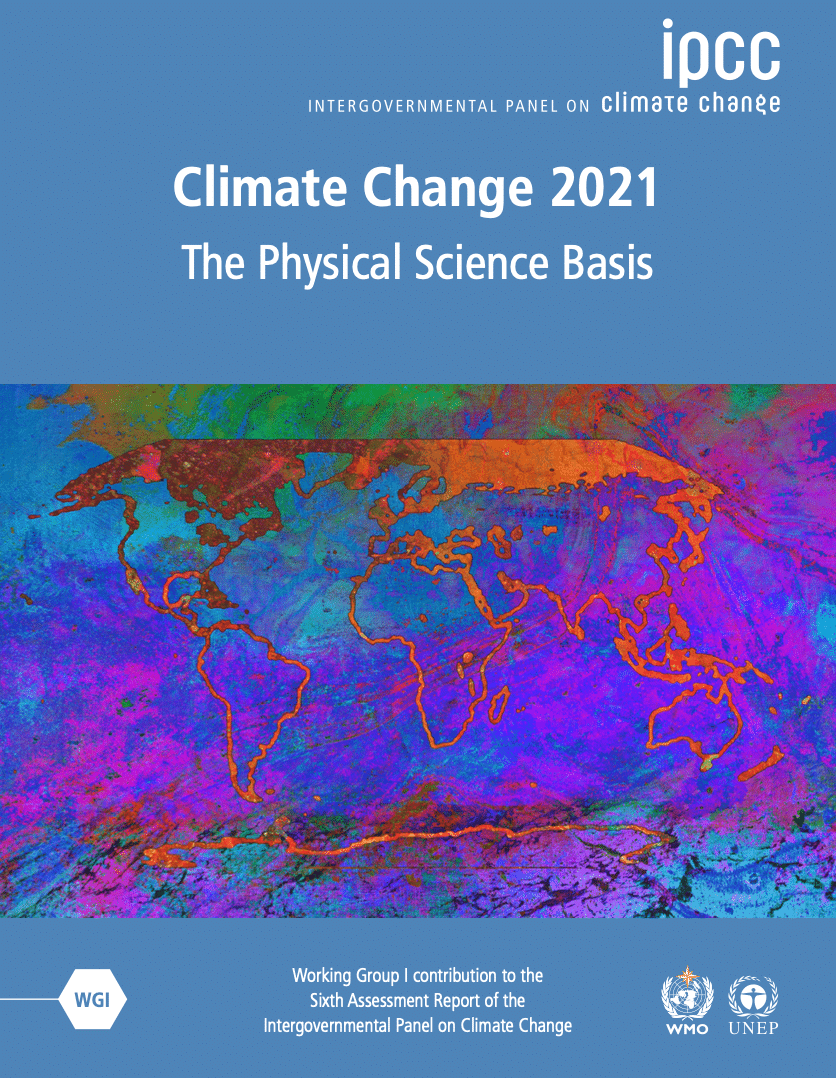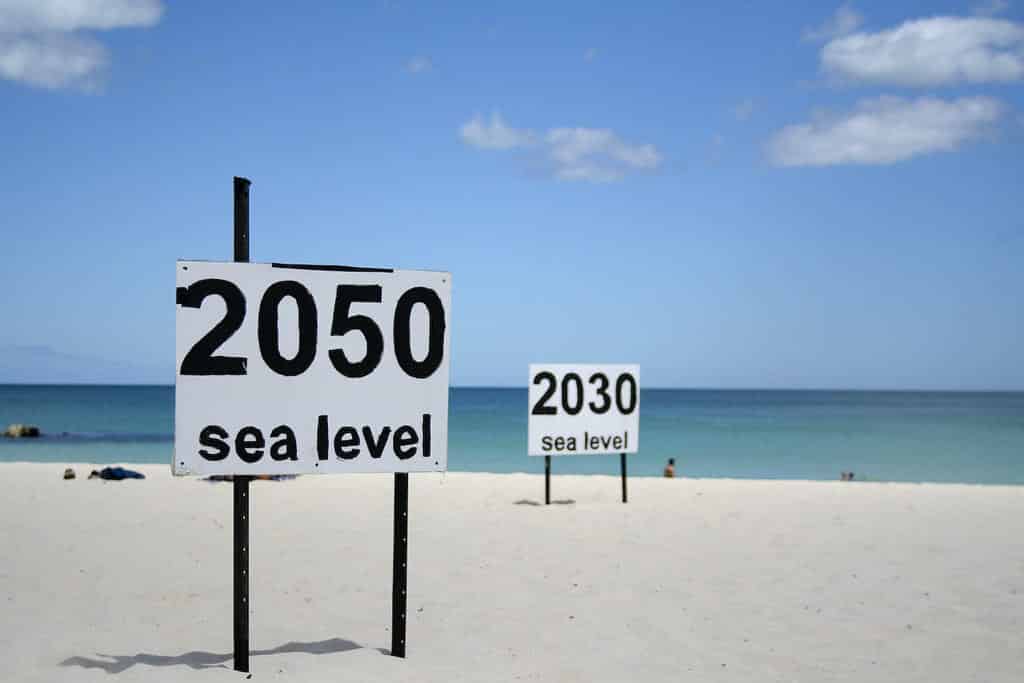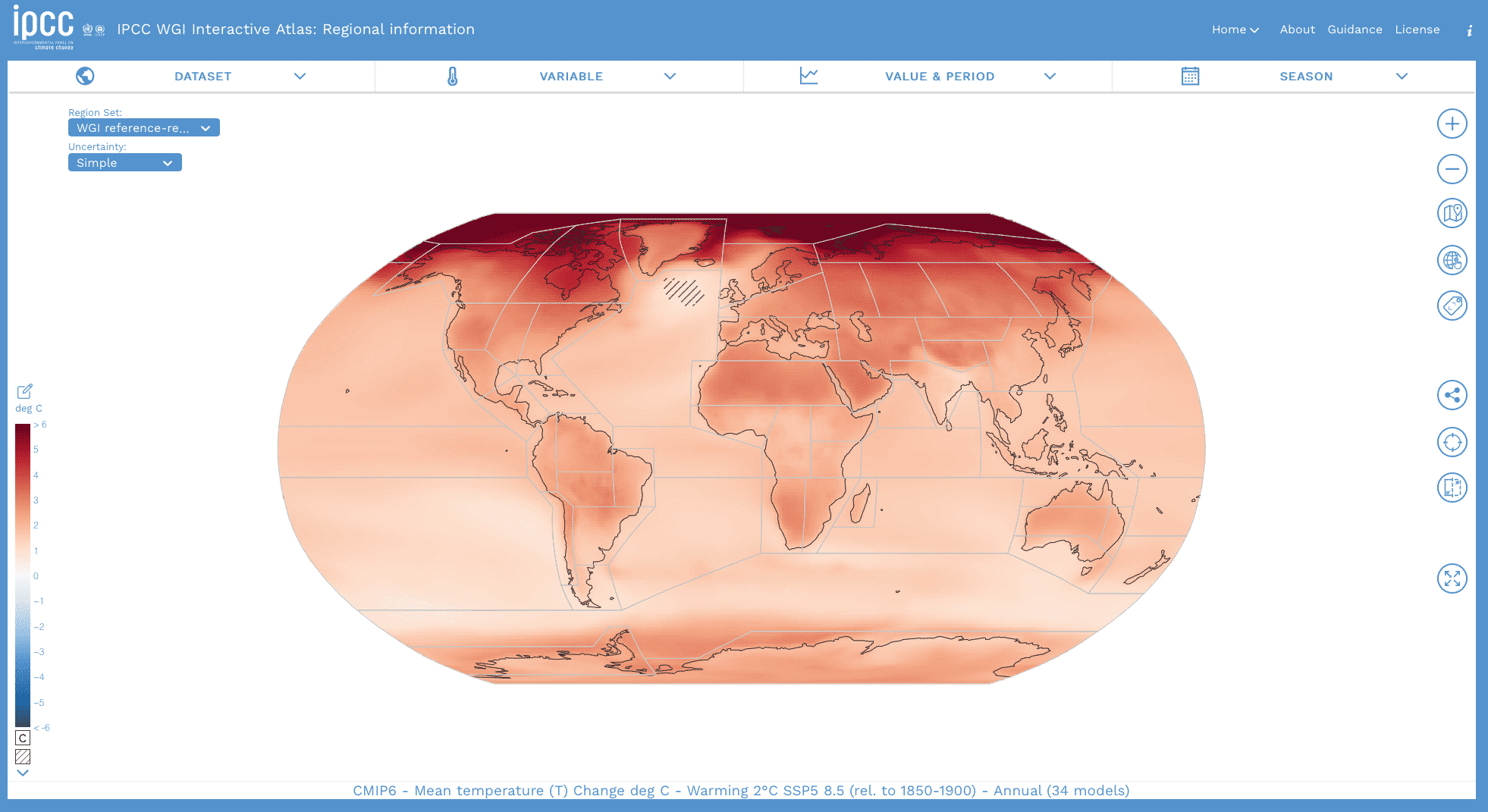Today, Monday 9 August 2021, the
IPCC Working Group 1
presented the sixth assessment report.
Human influence on the climate is now “unequivocal”

Whopping 3,949 pages about the physical basis of climate change
When I downloaded it from the website, I realized that this report contains a whopping 3,949 pages. So if I read one page a day, I will still be reading it in 2030. Is it possible to make sense of this vast source of information? This is only the working group’s report that deals with our knowledge of the physical basis of climate change, i.e., the basic scientific knowledge. Two other parts, dealing with the effects of the climate crisis and ways to reduce these effects, will follow next year.
The report’s authors use terms for their conclusions, such as “extremely likely”, “virtually certain” or “high confidence”. This is for facts like the world is 1.1ºC hotter than in the late 19th century; glaciers shrunk; the jet streams shifted; the Arctic sea ice eroded, the oceans are warmer, and the sea-level is rising.
So it can hardly be due to the amount and density of information that we are not making much progress in our fight against the negative effects of climate change. I hope that the scientists’ clarity in naming the responsible party, namely us, will also lead to equal decisiveness in political action.

Sea level rising faster and faster
As far as our primary concern, the ocean and the sustainable use of the ocean, is concerned, the report states beyond doubt that sea-level rise will continue inexorably. It is merely a question of different scenarios as to how rapid and how pronounced the increase will be. Sea level rising faster and faster.
The ocean had warmed more rapidly in the past century than at any time since the end of the last ice age 11,000 years ago. The ocean covers 70 percent of the Earth’s surface, and it stores the most significant amounts of heat during climate changes (over 90 percent of modern global warming).
The IPCC concludes that sea levels have risen more rapidly since 1900 than for at least 3000 years in any previous century.
And the IPCC warns that the rise is accelerating – in the past fifteen years, sea levels have already risen three times as fast as they did before 1971.
In a 1.5-degree scenario, i.e. adherence to the Paris Agreement, the further rise can probably be limited to less than half a metre by 2100. But if emissions continue to rise sharply, a rise of up to two metres by 2100 and even five metres by 2150 cannot be ruled out. That would be a catastrophe of planetary proportions.
A very informative and exciting tool is the Interactive Atlas. That tool presents graphically flexible spatial and temporal analyses of much of the observed and projected climate change information.

